What is seo marketing- Digitalidiots.in
What is seo marketing:
SEO stands for “search engine optimization.” In simple terms, SEO means the process of improving your website to increase its visibility in Google, Microsoft Bing, and other search engines whenever people search for:
- Products you sell.
- Services you provide.
- Information on topics in which you have deep expertise and/or experience.
The better visibility your pages have in search results, the more likely you are to be found and clicked on. Ultimately, the goal of search engine optimization is to help attract website visitors who will become customers, clients or an audience that keeps coming back.
What you’ll learn in this guide:
- How SEO differs from SEM and PPC
- Why SEO is important
- SEO types and specializations
- How SEO works
- How to learn SEO
How is SEO different from SEM and PPC?
SEM and PPC are two other common terms you will read about a lot here on Search Engine Land and hear about in the larger search marketing community.
Read on to learn more about both of these terms and how they’re related to SEO.
Why Is Search Engine Marketing Important?
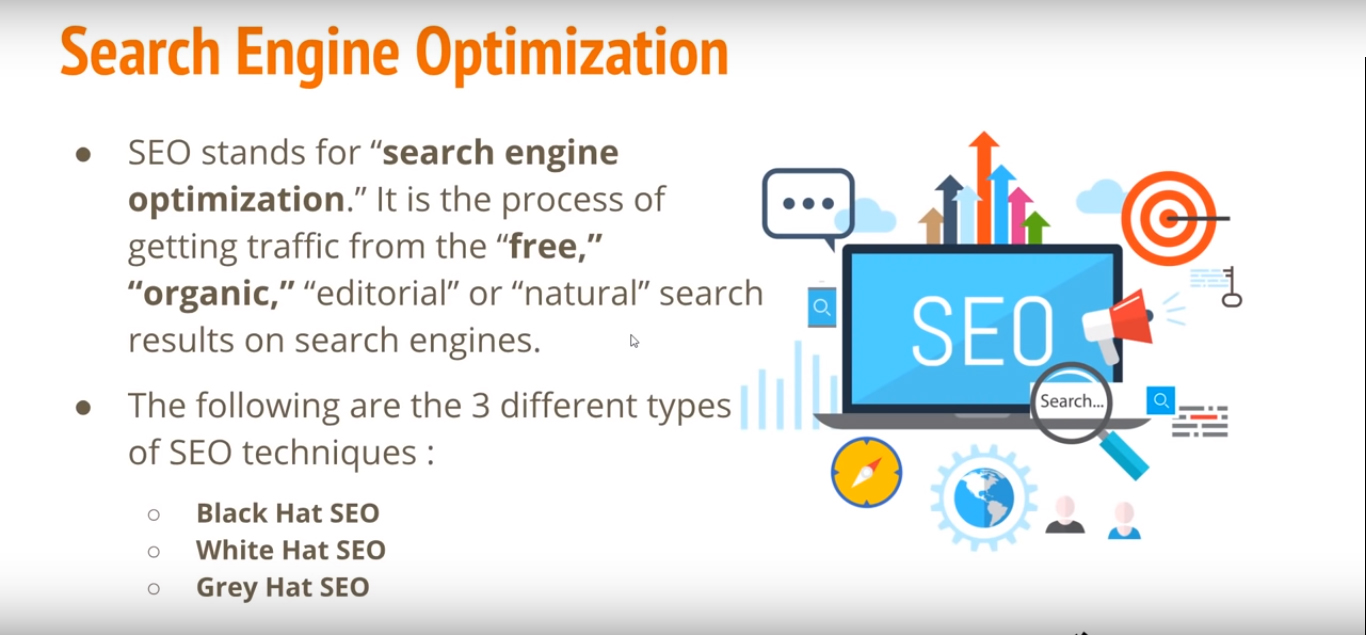 In the modern world, technology is an essential part of life, and search engines play an important role in that reality. Thousands of users perform search engine queries just about every second of every day. That is a tremendously large and constantly replenished audience to reach from a marketing perspective.
In the modern world, technology is an essential part of life, and search engines play an important role in that reality. Thousands of users perform search engine queries just about every second of every day. That is a tremendously large and constantly replenished audience to reach from a marketing perspective.
Digging a little deeper into the data, it becomes clear that marketing SEO is an exceptionally powerful tool. Courtesy of SEO Tribunal, the statistics below represent approximate figures to demonstrate the impact of search engine marketing:
- 67,000 users perform a Google search every second of every day.
- 93 percent of online endeavors start with a search engine query.
- 80 percent of searchers disregard paid advertisements in search results.
- 58 percent of online searches come from mobile devices.
- 46 percent of Google searches are locally and geographically focused.
- 39 percent of global traffic to eCommerce websites originates from search engines.
Taken as a whole, search engines represent a massive pipeline of potential customers for marketing purposes. Furthermore, SEO marketing strategies tend to have a much higher conversion rate than traditional marketing or advertising endeavors. Therefore, organizations that disregard search engine marketing do so at their own peril.
To learn more about how to maximize marketing SEO benefits, it is necessary to understand the inner workings of two major categories — On-page SEO and Off-Page SEO.
What Are the Components of On-Page SEO?
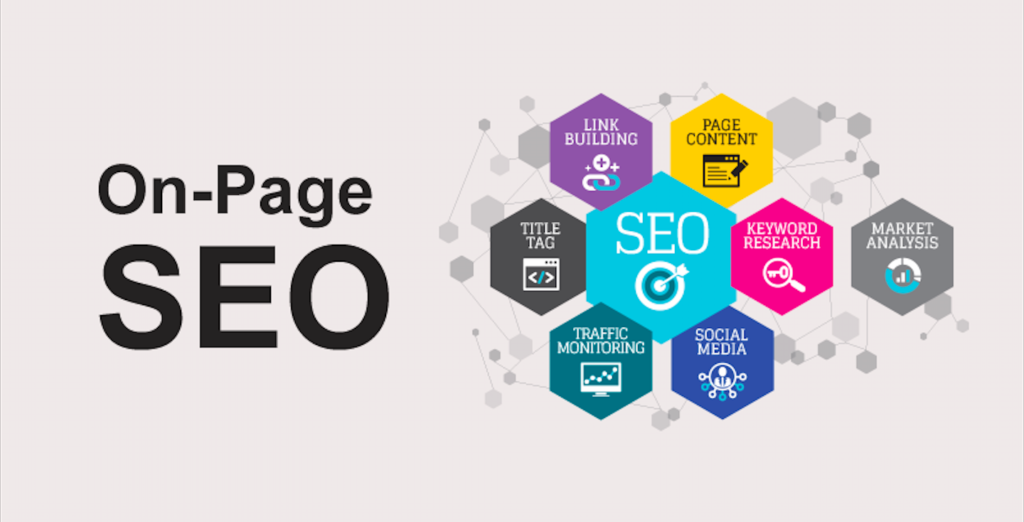 Sometimes referred to as “on-site SEO,” on-page SEO relates to the optimization of websites and pages to improve rankings in the major search engines. Organizations have a high degree of control over the elements of on-page SEO, making it relatively straightforward to optimize these factors and improve search rankings.
Sometimes referred to as “on-site SEO,” on-page SEO relates to the optimization of websites and pages to improve rankings in the major search engines. Organizations have a high degree of control over the elements of on-page SEO, making it relatively straightforward to optimize these factors and improve search rankings.
Several important aspects of on-page SEO include (1) Content, (2) Keywords, (3) HTML, and (4) Architecture.
1. Content
Search engine marketing is highly dependent upon the production of good content on a regular basis. From this standpoint, content must satisfy a need, generally by supplying information or answering a question. At the end of the day, content needs to be useful to rank highly in search results, whether that content appears in text, audio, or video format.
Overarchingly, digital content should adhere to the following rules to optimize search engine marketing:
- Superior Quality — Search engines are constantly trying to rank high-quality content over lower-quality offerings. When organizations produce and deliver content that provides value to the end-user, search engine rankings tend to improve in tandem.
- Targeted Intent — Search engines evaluate a user’s intent when searching to help provide the best results. Accordingly, digital content should match up with the desired intent of a targeted user. For example, a recipe post with instructions should be targeted toward searches for cooking assistance.
- Timely & Relevant — Sometimes referred to as freshness, new content that is timely and relevant will typically rank higher than older content. But search engines do also reward pages with refreshed content, such as new statistics or updated links.
As the major search engines have evolved over time, content has emerged as one of the best ways to improve marketing SEO. Without producing high-quality content on a consistent basis, it is extremely difficult to achieve search engine marketing goals.
2. Keywords
Keywords refer to the subject or topic of a content piece that is the basis of a search query. Keyword research and selection are closely tied to content production and fundamental to SEO marketing efforts. To maximize search engine marketing, organizations should select appropriate keywords, both in terms of search frequency and competitiveness.
From a frequency standpoint, organizations should leverage a keyword research tool to evaluate how often users search for particular terms. Even if a particular keyword is highly relevant to business products or services, it is unlikely to be an effective tool if no one is searching for it. Consequently, choosing a popular keyword is essential to marketing SEO.
That being said, it is also vital to assess the competition for popular keywords. If there are many other companies already using a keyword — particularly well-established organizations with a high degree of online gravity — it can be difficult to break through into the top search results. When the landscape is this crowded, it can be a good idea to evaluate related keywords that have less competition.
3. HTML
Optimization of specific HTML elements can help improve the search rankings of a website or page. In this sense, the way HTML pages are tagged, described, and labeled indicates a level of quality to search engines. Taking the time to clean up and maintain HTML elements can have a great impact on digital marketing efforts.
Of particular note, the following HTML elements tend to come into play from a marketing SEO standpoint:
- Title Tag — The title tag serves as a description of a page, appearing in search results and the user’s browser tab. The title tag should include the target keyword and provide an enticing reason to click on the link in the search results.
- Meta Description — The meta description appears below the title tag in search results, providing a general breakdown of the page in question. Typically limited to 160 characters, this description can deliver additional information that convinces a user to click through to the content.
- URL — The URL is the digital address of a webpage that is unique from all other pages. To rank highly in search results, the URL should include the target keyword and indicate the site hierarchy. If this information does not appear clearly in the URL, it can have a negative impact on search rankings.
- Alt Text — Alt text refers to the description of an image that was traditionally used to relay information to users with visual disabilities. In addition to describing an image, alt text can also include target keywords to help improve search rankings.
- Headings — Headings help divide a content piece into separate sections, functioning similarly to an outline. There are usually six levels of headings in HTML content, with the “H1” heading referring to the title. By dividing content into digestible pieces and labeling each one with an appropriate heading, it can improve SEO marketing efforts.
4. Architecture
The architecture of a website or page is another important aspect of on-page SEO. Although an end-user does not usually visit a page to examine its architecture, these behind-the-scenes elements can have a drastic impact on SEO marketing.
When optimizing websites or pages for SEO benefits, the following architecture elements are of crucial concern:
- Site Map — Search engines use automated processes to “crawl” or index digital content and determine appropriate rankings. Creating an organized site map of all pages on a particular site can help crawling efforts and also improve search engine marketing.
- Loading Speed — Pages that load quickly tend to rank higher in search engine rankings. When a page or one of its elements takes a while to load, it creates a negative user experience. Search engines devalue slow-loading pages accordingly.
- Mobile Friendly — With the rise of mobile technology, an ever-growing slice of search activity occurs on phones and similar devices. Correspondingly, the major search engines will penalize websites or pages that are not optimized for a streamlined mobile experience.
- Website Security — Search engines are wary of referring traffic to unsecured or unsafe websites. These destinations pose an inherent risk to the end-user, which typically results in downgraded search rankings. By securing their website with HTTPS and SSL certificates, an organization can gain credibility from a search rankings standpoint.
What Are the Elements of Off-Page SEO?
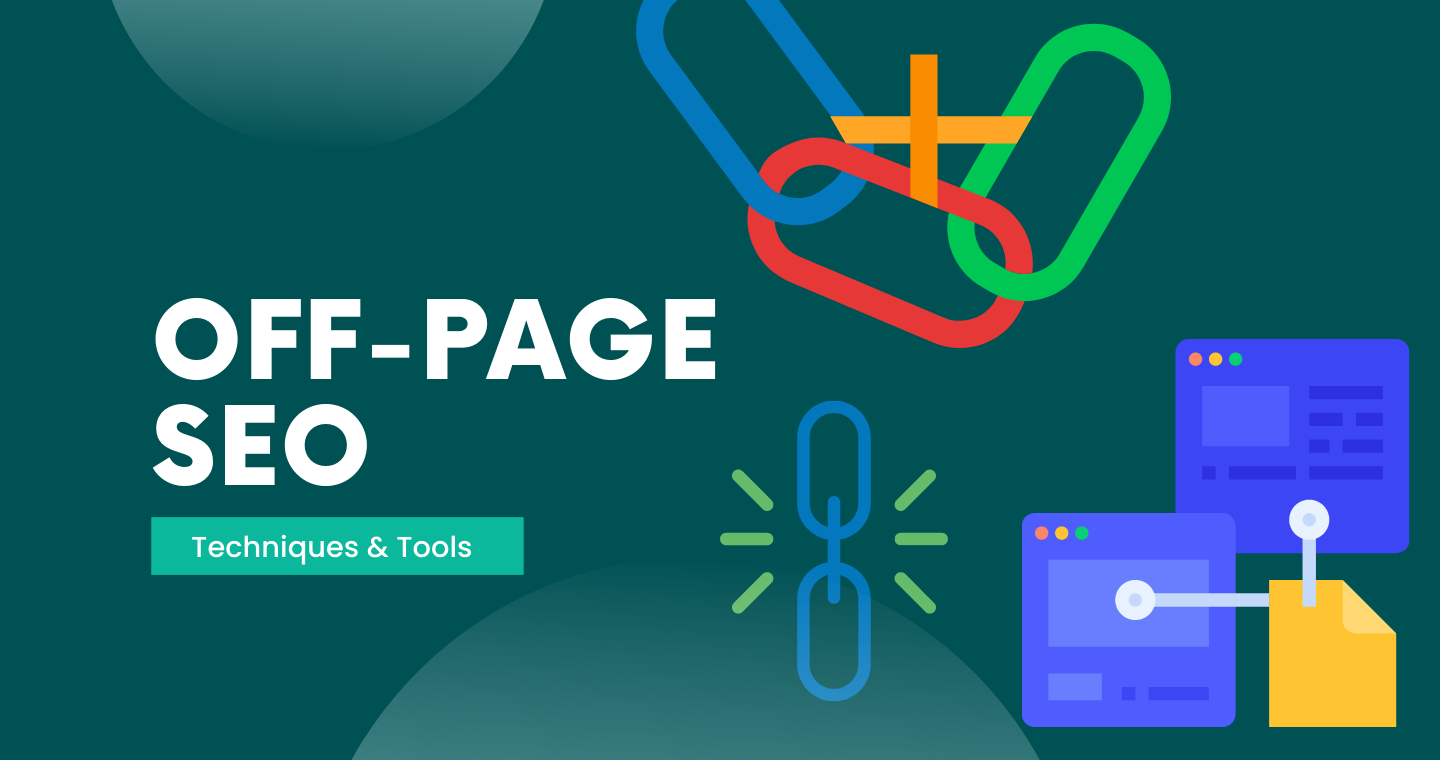 Whereas organizations have a broad degree of control concerning on-page SEO, it can be a little different for off-page SEO. On a larger level, off-page SEO relates to the reputation and popularity of websites and web pages. For example, external references to a site or page — often referred to as “backlinks” — are vital to maximizing the impact of marketing SEO.
Whereas organizations have a broad degree of control concerning on-page SEO, it can be a little different for off-page SEO. On a larger level, off-page SEO relates to the reputation and popularity of websites and web pages. For example, external references to a site or page — often referred to as “backlinks” — are vital to maximizing the impact of marketing SEO.
Several important aspects of on-page SEO include (1) Links, (2) Authority, (3) Geography, and (4) Social.
1. Links
External links to an organization’s digital content are a highly valuable aspect of search engine marketing. Internal links from one page of a website to another are also important as they demonstrate a level of organization and cohesion to the major search engines. However, not all links are created equal.
The quality of a link is often more important than the overall quantity of links to a particular site or page. The highest quality links to digital content come from reputable destinations elsewhere online. These linking websites have a high degree of authority (more on this below), which demonstrates a certain level of credibility and usefulness.
While not quite as important as the quality, the number of links to a site or page is also important to marketing SEO. When there are many links to a piece of digital content, it can demonstrate value and popularity. But this is not a quid pro quo situation. Augmenting link quantity does not necessarily improve search rankings, particularly if the links have little value or come from low-level destinations.
Ultimately, marketers should remember that building a solid link profile takes time. There are no shortcuts in this arena, as search engines tend to devalue spams links that add little to no value. Whereas, discrete links from numerous reputable sources can increase the trustworthiness of a particular website or webpage. Moreover, internal links help organize the layout of a website and can improve SEO marketing efforts.
2. Authority
The authority or trustworthiness of a particular website or web page is another vital aspect of off-page SEO. Viewed through a macro lens, trustworthy and authoritative websites will generally occupy the first page of results in the major search engines. To build authority over time, employ transparent SEO practices and build a credible reputation online.
Important aspects of authority from the standpoint of marketing SEO include:
- Domain Authority — Domain authority is a ranked score that attempts to predict how an entire website will rank in search engine results. Domain authority involves an analysis of backlinks, top-level domains, and various other factors. Websites with a high domain authority tend to perform better in search results.
- Domain Age — Domain age is an important aspect of authority. Websites that have been around for a long time tend to rank higher than new sites. But domain age does not improve rankings in and of itself. In other words, search rankings do not improve merely because a website has been around for a while.
- Page Authority — Page authority is a ranked score that attempts to predict how one page will rank in search engine results. Page authority involves a substantially similar analysis to domain authority but is conducted only on a single page. Pages with a high authority tend to perform better in search results.
- Bounce Rate — Bounce rate refers to the number of users who view one page on a website before leaving. Whether the user bounces because of poor content, slow loading times, or a poor experience, the implication is clear. Websites with a high bounce rate are less authoritative and, thus, lose out on certain SEO benefits.
3. Geography
The geographical aspect of off-page SEO relates mostly to location and demographics. Given the rising prevalence of mobile search, geography factors heavily into the ranking of search results for a specific user. More precisely, local search results within a particular city or zip code are growing rapidly in popularity. Search engines have reacted in tandem, shifting focus to local results for many types of queries.
From a national standpoint, search engines tend to have separate websites for each country. This allows for the segmentation of websites and webpages, specifically targeted for users in a particular country. Even if two countries share the same language — such as the United States and Great Britain — users typically want results within their own nation.
From an international standpoint, global organizations typically establish separate marketing SEO strategies for each country in which they operate, including any necessary translation. In this way, international organizations can utilize a targeted approach across multiple countries and search results, attracting prospective customers from all over the world.
4. Social
Establishing a solid presence on social media can also help boost search engine marketing efforts. More specifically, search engines look at how users share an organization’s content from the standpoint of:
- Quality — The quality metric of social shares involves the sentiment or opinion of the user, including comments, replies, and ratings. In this sense, quality metrics attempt to distill whether the user sharing the content did so in a positive, negative, or indifferent manner.
- Quantity — The quantity metric of social shares is more straightforward, simply measuring the total number of shares. Although a high quantity of shares is undoubtedly a good thing, it does not necessarily translate into conversions or customers.
To maximize the social aspect of off-page SEO, the discussion comes full circle back to the importance of content. By creating superior-quality content and posting regularly, it is possible to amplify the quality and quantity of social shares.
How Can Organizations Boost Marketing SEO Results?
 In short, the best way to boost search engine marketing efforts is to employ a dedicated strategy for both on-page and off-page SEO. Of particular importance, content tends to rise to the top. Without producing superior content on a regular basis, it is difficult to gain popularity and build extensive links. At the end of the day, the most efficient and optimized page is of little use without excellent content to drive traffic.
In short, the best way to boost search engine marketing efforts is to employ a dedicated strategy for both on-page and off-page SEO. Of particular importance, content tends to rise to the top. Without producing superior content on a regular basis, it is difficult to gain popularity and build extensive links. At the end of the day, the most efficient and optimized page is of little use without excellent content to drive traffic.
That being said, organizations seeking to maximize their marketing SEO benefits should adhere to the recommendations below:
- Create high-end content consistently to provide valuable information and drive online traffic.
- Conduct keyword research to isolate appropriate and competitively balanced search terms.
- Optimize HTML elements to label, divide, and organize digital content.
- Ensure site and page architecture are secure, efficient, and accessible across multiple devices.
- Build quality links and authority over time to gain credibility and trustworthiness in the eyes of major search engines.
- Align websites and webpages to specific geographic areas, targeting locally, nationally, and internationally.
- Establish a solid foundation in social media networks to drive the quality and quantity of digital content shares.
As noted previously, search engines represent an exceedingly vital and constantly expanding arena for marketing opportunities. Organizations that employ the on-page and off-page SEO tactics above stand to reap substantial benefits.

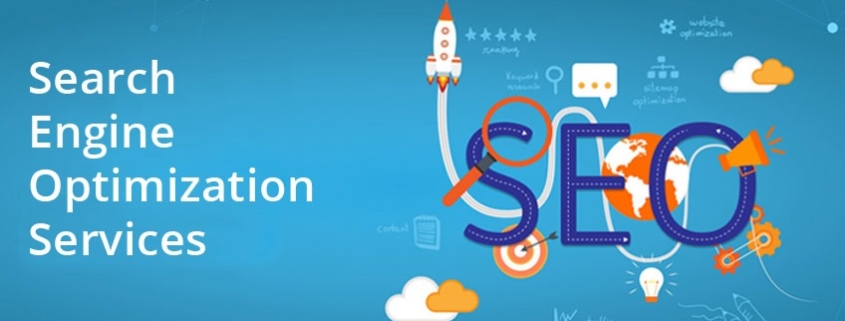


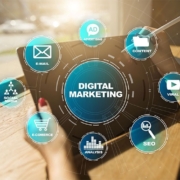
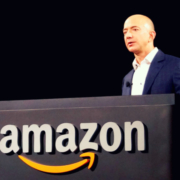

 digitalidiots.in
digitalidiots.in
ИТ-специалисты — новые инженеры мира kra 40 at kra40at kra40 at
ИТ-отрасль не знает кризисов kraken сайт зеркала кракен onion сайт kra ссылка kraken сайт
Цифровой мир без границ кракен онион тор kraken ссылка тор kraken ссылка зеркало kraken ссылка на сайт
Интернет изменил мышление человека кракен ссылка kraken кракен onion сайт kra ссылка kraken сайт
ИТ развиваются быстрее, чем мы успеваем кракен даркнет маркет kraken onion kraken onion ссылка kraken onion зеркала
Развитие ИТ меняет образование kra ссылка kraken онион kraken онион тор кракен онион
Без ИТ нет прогресса kraken darknet kraken onion kraken onion ссылка kraken onion зеркала
Cocaine comes from coca leaves organize in South America.
While once used in stock pharmaceutical, it’s in this day a banned substance rightful to its dangers.
It’s highly addictive, unrivalled to well-being risks like heart attacks, conceptual disorders,
and merciless addiction.
Новые технологии рождают новые идеи кракен onion сайт kraken рабочая ссылка onion сайт kraken onion kraken darknet
Мир программируется заново
сайт kraken darknet kraken зеркало рабочее актуальные зеркала kraken kraken сайт зеркала
Разработка ПО — искусство XXI века сайт kraken darknet кракен darknet кракен onion кракен ссылка onion
Profitez du code promo 1xbet 2026 : recevez un bonus de 100% sur votre premier depot, jusqu’a 130 €. Placez vos paris en toute plaisir en utilisant simplement les fonds bonus. Une fois inscrit, n’oubliez pas de recharger votre compte. Si votre compte est verifie, vous pourrez retirer toutes les sommes d’argent, y compris les bonus. Le code promo 1xbet est disponible via ce lien > https://payhip.com/bonusbet/blog/news/les-code-promo-1xbet-2026-bonus-exclusif-jusqu-a-130.
Технологии делают работу быстрее кракен ссылка onion kraken onion kraken onion ссылка kraken onion зеркала
Программисты решают глобальные задачи кракен onion kraken актуальные ссылки кракен ссылка kraken kraken официальные ссылки
Без технологий нет роста kraken onion зеркала kraken актуальные ссылки kraken зеркало kraken ссылка зеркало
на бизе хорошей контора была….да! https://www.betterplace.org/en/organisations/69848 бро все что ты хочешь услышать, написано выше!! спакойствие и ожидание!)) купить онлайн мефедрон, экстази, бошки и сколько те6е поо6ещали заплотить?
Спасибо за понимание. https://bio.site/rvvihacny
Торчал дома 2 дня,ждя,пока придёт этот курьер. Решил написать,чтоб кинули трек-надоело мне быть в ожидании. Оказалось,что: https://milespeyton.info Конспирацию посылок наладили? А то такой товар, а выписать не могу – стрёмно, если просто гриперы в конверте… И отпишите по качеству 5 мео дмт! купить онлайн мефедрон, экстази, бошки
когда вы зарядили?мои ребята зарядили вчера около 16-00 по мск ,минут за 15 до этого он добро дал и замолчал( переживаю очень так как отвечать мне.Я надеюсь лавочка не слилась с пацанскими деньгими… А то конкретная пичаль будет.У нас в регионе это большая сумма!!! https://wikibot.info я заметил тенденцию, у магазинов LegalLuna, Alfa, которые оказались не порядочными:dontknown: купить онлайн мефедрон, экстази, бошки
вот вот такая же история! надо разобраться с этим вопросом! https://hiphopget.com Спасибо!Не надо! купить кокаин, меф, бошки через телеграмм
Или вводит всех в заблуждение?! https://milespeyton.info мало того что неприятный опыт общения в гоме так и не денег не товару.. купить онлайн мефедрон, экстази, бошки
Продукт получен, доставка по Москве заняла примерно сутки. Проверить качество пока не могу, но надеюсь приемлемое. https://alleya.info Ам имеет высокий толер об этом уже говорилось не раз купить кокаин, меф, бошки через телеграмм
где найти промокод для 1хБет Активируйте бонус при регистрации на http://www.google.co.ug/url?q=https://bergkompressor.ru/news/artcles/?1xbet_promokod_pri_registracii_bonus_5.html и получите 32 500? + 100% к депозиту, чтобы получить максимальное преимущество.